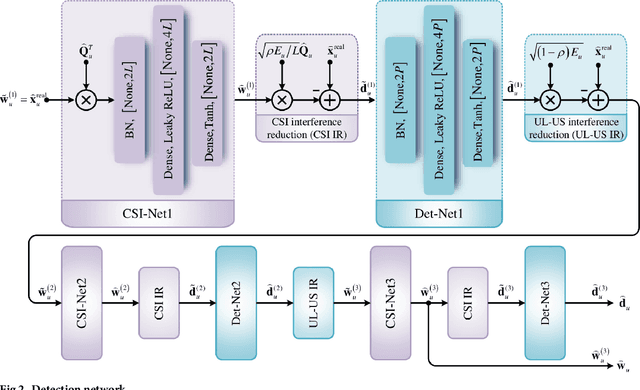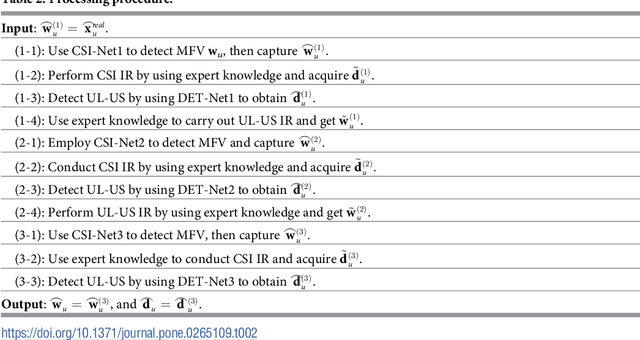Deep Learning for 1-Bit Compressed Sensing-based Superimposed CSI Feedback
Paper and Code
Mar 13, 2022



In frequency-division duplexing (FDD) massive multiple-input multiple-output (MIMO) systems, 1-bit compressed sensing (CS)-based superimposed channel state information (CSI) feedback has shown many advantages, while still faces many challenges, such as low accuracy of the downlink CSI recovery and large processing delays. To overcome these drawbacks, this paper proposes a deep learning (DL) scheme to improve the 1-bit compressed sensing-based superimposed CSI feedback. On the user side, the downlink CSI is compressed with the 1-bit CS technique, superimposed on the uplink user data sequences (UL-US), and then sent back to the base station (BS). At the BS, based on the model-driven approach and assisted by the superimposition-interference cancellation technology, a multi-task detection network is first constructed for detecting both the UL-US and downlink CSI. In particular, this detection network is jointly trained to detect the UL-US and downlink CSI simultaneously, capturing a globally optimized network parameter. Then, with the recovered bits for the downlink CSI, a lightweight reconstruction scheme, which consists of an initial feature extraction of the downlink CSI with the simplified traditional method and a single hidden layer network, is utilized to reconstruct the downlink CSI with low processing delay. Compared with the 1-bit CS-based superimposed CSI feedback scheme, the proposed scheme improves the recovery accuracy of the UL-US and downlink CSI with lower processing delay and possesses robustness against parameter variations.
 Add to Chrome
Add to Chrome Add to Firefox
Add to Firefox Add to Edge
Add to Edge